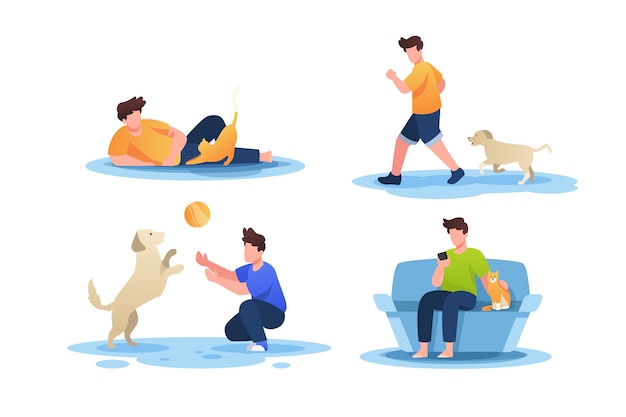

Can You Socialize an Adult Dog?
Did you know that about 20% of adult dogs in the United States haven’t been properly socialized? This highlights the significant need to address socialization for adult dogs, especially those who may not have had the best experiences early on. But what about adult dogs? Is it too late to help them overcome their fears and anxieties? Let’s dive into the possibilities of socializing adult dogs and explore effective strategies to help them become more confident and comfortable in various social settings. If you’ve ever wondered if it’s possible to help an adult dog develop better social skills, read on to find out more.
What Is Dog Socialization?
Dog socialization is all about helping your furry friend get used to other dogs, new people, and unfamiliar environments so they can live happier and more relaxed lives. While puppies are generally easier to socialize because they are more fearless and curious, adult dogs can also be successfully socialized with some effort and patience. Whether you adopted your dog later in life or during lockdowns, it’s never too late to start socializing an adult dog.
To socialize an adult dog, use positive reinforcement and training methods. Reward calm behavior with treats and praise to help your dog associate social encounters with positive experiences. Gradually introduce your dog to potential triggers—like other dogs—in controlled environments. Pay close attention to their body language and offer reassurance when needed.
Taking your dog on regular walks is a fantastic way to introduce them to new sights, smells, and sounds. Choose different routes to offer variety and help your dog become familiar with their surroundings. This exposure can help them feel more comfortable in unfamiliar environments.
As your dog makes progress, consider gradually introducing them to puppies and children. Supervision is key to ensure everyone’s safety and to avoid any negative experiences. Visiting dog parks or attending doggy daycare can also provide valuable social interaction under controlled and supervised conditions.
Maintaining consistent socialization activities is crucial for improving your dog’s behavior and overall quality of life. With patience, consistency, and positive reinforcement, you can help your adult dog become more comfortable and confident in various social situations.
Benefits of Socializing Your Adult Dog
Socializing your adult dog offers a myriad of benefits, contributing to their improved behavior, happiness, and overall well-being. First, socializing an adult dog positively affects their behavior and reduces anxiety. By exposing your dog to different people, pets, and environments, you help them become more comfortable and less stressed in new situations, which in turn leads to increased happiness.
Socialization also makes your dog more adaptable and resilient. They learn how to handle various situations and can easily adapt to new experiences. This is especially important if you plan to introduce new pets or children into the family. With proper socialization, your dog can integrate more smoothly, creating a harmonious home environment for everyone involved.
Additionally, socializing an adult dog can prevent the development of behavioral issues. Dogs that are socialized are less likely to become fearful, aggressive, or reactive toward other dogs or people. By exposing your dog to different social situations, they learn to read other dogs’ body language and become comfortable around unfamiliar people.
Taking the time to socialize with an older dog is well worth the effort. The benefits include improved behavior, increased happiness and comfort, easier integration into the family, enhanced adaptability and resilience, and prevention of behavioral issues. Socializing your adult dog can dramatically improve their quality of life, making them a happier and more well-rounded companion.





